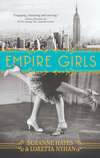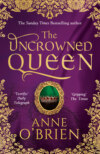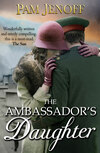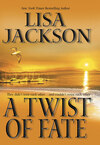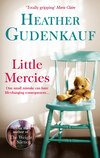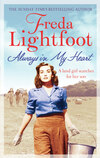Loe raamatut: «Empire Girls»
The critically acclaimed authors of I’ll Be Seeing You return with a riveting tale of two sisters, set in the intoxicating world of New York City during the Roaring Twenties.
Ivy and Rose Adams may be sisters, but they’re nothing alike. Rose, the eldest, is the responsible one, while Ivy is spirited and brazen. After the unexpected death of their father, the women are left to reconcile the estate, when they make a shocking discovery: not only has their father left them in financial ruin, but he has also bequeathed their beloved family house to a brother they never knew existed. With only a photograph to guide the way, Ivy and Rose embark to New York City, determined to find this mysterious man and reclaim what is rightfully theirs.
Once in New York, temptations abound at every turn, and soon the sisters are drawn into the glitzy underbelly of Manhattan, where they must overcome their differences and learn to trust each other if they’re going to survive in the big city and find their brother. Filled with unforgettable characters and charm, Empire Girls is a love letter to 1920s New York, and a captivating story of the unspoken bond between sisters.
Praise for Suzanne Hayes & Loretta Nyhan and I’ll Be Seeing You
“I devoured this story in one greedy, glorious gulp. Oh, the women! I love them. I love their families and their voices and their stories. I bet you’ll love them, too.”
—Marisa de los Santos, bestselling author of Love Walked In
“Timeless and universal…a deeply satisfying tale.”
—Booklist
“A delight! I’ll Be Seeing You made me want to get out a pen and paper and write a friend a good old-fashioned letter.”
—Sarah Jio, bestselling author of The Violets of March
“As beautifully written as it is captivating. An absolutely terrific debut.”
—Sarah Pekkanen, author of The Opposite of Me
“A moving portrayal of women waiting and enduring and re-inventing their lives in wartime, and a wonderful affirmation of the life-enhancing potential of female friendship.”
—Margaret Leroy, author of The Soldier’s Wife
“Vivid and well-crafted…. Readers will laugh, cry and be inspired.”
—Pam Jenoff, bestselling author of The Kommandant’s Girl
“I read this sweet, compassionate novel with my heart in my throat.”
—Kelly O’Connor McNees, author of The Lost Summer of Louisa May Alcott
“An all-around beautiful tale of the power of love and friendship.”
—RT Book Reviews
Empire Girls
Suzanne Hayes & Loretta Nyhan

To my daughters, Rosy, Tess and Grace. Sisters who save secret smiles for one another. I adore you.
—Suzanne
To New York, city of my dreams.
—Loretta
Contents
CHAPTER 1
CHAPTER 2
CHAPTER 3
CHAPTER 4
CHAPTER 5
CHAPTER 6
CHAPTER 7
CHAPTER 8
CHAPTER 9
CHAPTER 10
CHAPTER 11
CHAPTER 12
CHAPTER 13
CHAPTER 14
CHAPTER 15
CHAPTER 16
CHAPTER 17
CHAPTER 18
CHAPTER 19
ACKNOWLEDGMENTS
EXTRACT
READER'S GUIDE FOR EMPIRE GIRLS
QUESTIONS FOR DISCUSSION
A CONVERSATION WITH THE AUTHORS
CHAPTER 1
Rose
THE EVENING MY father died, I was stirring the stew in our big comfortable kitchen as I read another chapter of Bleak House. The pages, already wrinkled from breakfast and lunch, now had a big smear where I’d laid the spoon down. Most of my books wore the same battle wounds. But I didn’t really mind because I thought that the smudges and stains added character to their pages. A story within a story. It was careless, and I meant it to be so. Most nights, when all the work was done for the day, I could sit and look at those messy pages, remembering the young girl I was before becoming the only responsible person in our little family of three.
As the grandfather clock in the foyer struck six, I’d already placed our dinner on the table. Six had always been our dinner hour. Our mother was the one who’d chosen that time, and I worked hard to maintain the tradition. We lost her in 1918, when the flu swept through the world, cleaning out the dusty corners and finding everyone...even those of us who lived quiet lives in small towns like Forest Grove, New York.
I turned fifteen that year, and Ivy, fourteen. Our parents always babied and favored her, so she seemed younger then. Even though our mother was far too ill to pull me aside and give me a dramatic talk about passing the torch, I still believed she’d want me to be the one to look after our household. I was her best helper, and I took that role seriously. It was my job to watch over Ivy, my father and our home, Adams House, as well.
None of that seemed to matter to Ivy and Father when I had to coax them in from their garden every night. It was our evening ritual of cat and mouse. I cooked and then had to chase them, and by the time we were seated around the dining room table, the meal I’d prepared would be cold.
Mother and Father had traveled the world before they found out I was “on the way.” That’s when they gave up their vagabond ways and returned to Father’s ancestral home. I always believed that Adams House belonged to me. It became a living breathing part of my soul. Every clapboard of it, each column, all the curved arches. Mine. From its spires to the precarious-looking turrets, to the wide, wraparound porch. All mine. None of them loved it as much as I did. I considered Adams House to be a full member of the family, and as the years went by after Mother died, I took solace in the fact that I’d traded in the last bit of my childhood for full ownership. Adams House would be my legacy, payment in full for the years I spent in charge.
“Are you coming in or aren’t you?” I shouted out the top of the cottage door in the kitchen. “I prepared your favorite, Papa. Beef stew and biscuits. If you don’t come inside now, it will be a pasty mess.”
That evening was damp and raw. There’d been a lot of rain, and I watched the two of them come up from the ground, each with mud on their knees and flushed with the raw spring winds. Ivy began to yell something back at me, but father hushed her, placed his arm around her shoulders and guided her toward the house. It was good to see some pink in his cheeks. He’d gotten a pale, gray look over the winter months. I’d started to worry over him.
“Make sure you clean up before you take your seats,” I said.
“Make up your mind, Rose. Do you want us eating cold food or not?” said Ivy.
Father interjected before the two of us could begin a real argument. We always seemed to begin to argue if there was less than ten feet between us.
“Don’t fret, Rosemary. We’ll wash our hands at least.”
“There’s soapy water in a basin in the sink already. I know how long it takes to wash hands, so make sure you don’t dally. The both of you,” I said and returned to the dining room to arrange the silver.
Though we were twenty-two and twenty-one respectively, Ivy’d held on to her childish ways, and our Father never discouraged her. Ivy, at dinner, absolutely had to sit next to the French doors closest to the foyer so she could bolt from the room as soon as the meal was over. She despised being still and any sort of hard work, and was always running off here or there, dropping everything at the first opportunity to go on trips with Father, or swim and frolic in the small lake next to our house.
My wild little sister, Ivy, made the promise I’d given my mother—to watch over her—difficult to keep. She was different from the rest of us in both demeanor and appearance.
I’d always wondered if the physical contrasts between Ivy and myself were a manifestation of our distinctive personalities and constant disagreement. I had light hair, where hers was dark. I carried more of our father’s looks, though my hair was not quite blond enough, and my face had more angles. When I was a little girl, still free to daydream about things, I liked to imagine that our parents picked up bits and pieces of the distant lands they’d explored, and Ivy and I were born with those traits, as well.
As I got older, I began to believe Ivy was born of their more exciting adventures, while I was born of more bland destinations. I did have one feature that could be construed as mysterious, though. My eyes. They were a bright, icy blue. Ivy’s eyes were light green, calm like a tropical sea. I swear, I often thought that some terrible mistake was made. Ivy had an aloof streak that would go along with my eyes, not hers. And for whatever reason, Father and Mother—when she had been with us—could never see it.
“She has the soul of an Egyptian Goddess!” Father would say when she’d do something absurd. When we were little scraps, those statements would make me cringe, slam doors and run to my room. After Mother died, I had no time for tantrums, so I grew used to Father’s adoration of Ivy. Just as I grew used to Ivy’s way of curling around Father’s feet like a cat, or waking him up early in the morning when he’d shout, “Aces high in the ever-lovin’ sky!” to greet the new day, and the two would erupt in rollicking laughter. I’d listen from my own tidy room and pray they wouldn’t bring any neighbors over. Or stray cats.
But I envied her beauty and simply adored her thick, exotic hair. I almost went mad when she came home from town with her hair bobbed the previous autumn. I was weeding in the garden, planting tulip bulbs at the precise time of the season our mother would have been doing the same.
“Ivy! Your hair!” I said, getting up and pulling off my gloves so I could touch the ends that angled in toward her face.
Father, who’d taken her and approved of the drastic cut, smiled. “I think it’s marvelous. All the modern women are doing it, Rosemary. You should, too. I’ll take you next week, if you’d like.”
“I’d rather die,” I said, and went back to my chore. Ivy and I didn’t speak for days. She glared at me with those eyes of hers, and I glared right back.
Father and Ivy finally sat down at the dinner table. I looked through the doorway to the grandfather clock and noted the time.
“It is almost seven, you two. I simply cannot keep chasing you around. Soon you’ll have to make your own dinners,” I said, giving them both a good stare as I ladled the stew out into their bowls.
“Your eyes are a peculiar color for a practical girl, Rosemary,” Father said, reaching for a biscuit. “People might get the wrong impression of you.”
“Her posture will erase any sort of misunderstanding about our Rose’s disposition, Papa. She stands straight like a board. No flexibility whatsoever,” said Ivy.
“I’m going to agree with you, sister. I am vain about my perfect posture. You should try it, you know. Mother always told us...”
Ivy shot me a look across the table. She was right to stop me. Father didn’t like it when we talked about Mother. It made him sad, and that was one place where we agreed. We both loved our papa very much...even if it was for different reasons.
“Ivy,” said Father. “Be a love and pour your old papa a drink. And Rosemary is right, you know. You should stand up straighter. It’s a skill that comes with practice, not birth. You do slouch, my darling.”
“Papa, you shouldn’t! It’s not good for you. And you’ve barely touched your food. I made your favorite on purpose.”
He’d been picking at his meals for weeks, and I couldn’t tell if it was worry, or if it was his health or if it was a simple matter of our father beginning a new project in his mind. He was a botanist and illustrator, and he frequently lost himself in new ideas for drawings, books and experiments.
“Oh, Rose. Don’t be such a stick. I wonder, do you ever get tired of worry? It must be exhausting.” Ivy went to the cupboard under the china cabinet and brought out a bottle of Scotch. Father had bought cases of it before prohibition became law.
She poured father his drink.
“Thank you, Ivy,” he said, pushing himself back from the table a bit and taking a long sip.
“And you can have another if you’d like. I’ll keep the bottle right here,” said Ivy, looking straight at me as she said it, holding the neck of the bottle protectively.
“If that bottle makes a ring on my lace tablecloth, I’ll have to soak it for a week. You could be careful with my handiwork, even if you don’t want to be careful with our father’s health,” I said. It was a mean thing to say.
One would think my sister and I would be closer. We even shared a bedroom when we were small. It was a sweet, lovely space with whitewashed walls. Mother and Father knew that I liked things clean and crisp. Not Ivy, though.... As soon as Ivy turned seven, she demanded her own room, stating, “I hate all that white. May I have a bedroom that is painted blue?”
Our distance doesn’t come solely from our separate rooms; it comes from differing priorities and versions of the world. Ivy always saw things in a way that I could not. The world, it seemed, was made for her. Every tree, every idea, every bit of love was created for her, and she was determined to take it all. I didn’t understand her “the world is my oyster” view of life. Hard work has always been the thing that makes me proud. In the time since our mother’s death, I’d become the provider for our household, as well, making lace and sewing clothing for the dress shops in Downtown Forest Grove.
As Father picked at his meal and drank his Scotch, I looked at the three of us closely. Memory seems to understand important moments before our consciousness has a chance to catch up. I suppose a part of me knew that everything would be different in the morning.
I looked at my sister, who was trying to hide her boredom, looking over her shoulder at the clock. She was eager to leave the table and didn’t like to wait until everyone was finished.
And then I looked at Papa, ready with a smile or an approving nod for each of us, sitting at the head of the table, holding court. With Ivy and I on either side. His companions.
I was about to clear the table when a visitor came calling. Father rose quickly and had to steady himself before he walked slowly into our foyer to answer the door.
“Who do you think that is?” Ivy asked.
“I don’t know,” I said.
There were murmurs, and Ivy started to get up, as well, but I motioned for her to stay put.
“Yes, I am aware,” I heard Father say, and then the hushed dialogue continued.
“Join me as I smoke a pipe, won’t you, Lawrence? This is a lot for me to take standing up,” said Father as both men walked into our line of vision. Father looked into the dining room as our visitor took off his fedora. We’d known Lawrence—we all called him that, because Father did—for two years. He’d become our solicitor. He was a tall, thin man who reminded me a bit of a willow tree.
I stood up with as much grace as I could muster and walked to the two of them.
“Lawrence, how nice of you to stop by. Are you hungry? I have plenty of dinner left over. You remember Ivy, of course.”
“Of course,” said Lawrence. “Talented Ivy, who we are sure will be famous one day.”
Ivy got up and gave a large, exaggerated bow.
“And Rose, it’s been only a few months since I saw you, but you seem so grown-up now.”
“She is grown,” said Ivy. “She’s twenty-two, and that makes her a spinster.”
She was at my side, and she nudged me with her shoulder. I had to look deep into her eyes to make sure she was teasing me. Ivy likes to tease when she’s unsure of herself.
Mr. Lawrence cleared his throat. “As ever, it’s lovely to see all of you.” He looked a bit nervous.
“And you, Lawrence, though I wish it could have waited until tomorrow. My daughters and I do cherish our evenings together,” said Father, and then turned to me. “Rose,” he said, trying to keep his voice calm. I could hear the tension, though. I knew it because I shared that trait with him. A tightening of the voice when you want to remain calm. “Mr. Lawrence and I need to discuss business. Might you stay away from the drawing room this evening?”
“But Father, my monologue. I’ve been working on it for days,” whined Ivy.
“Hush, Ivy,” I said.
She rolled her eyes at me.
Lawrence was the one to save the moment. “There’s no reason for us to rush our talk, Everett. Why don’t we all go into the drawing room, I’d love to see Ivy’s monologue. It’s been an age since I’ve been to the theater. I do enjoy a good play.”
“Why, Lawrence, I never took you for a man of the arts!” said Ivy.
“There is much you don’t know about me, Ms. Adams,” he said, taking her arm and escorting her to the drawing room.
“I have always found it odd that you are a young man with an old man’s profession. Solicitors are sneaky characters in novels and films. Are you a criminal, Lawrence?”
“I don’t think so, Ivy,” he replied, and they laughed.
Ivy was always a flirt. She couldn’t help it, really. Her whole body flirted. Her swinging short hair was as good as a wink. Her painted lips were practically a kiss. Her short dress, an invitation. I was both jealous and fascinated by her. And that night, she fascinated Lawrence, as well.
As our father took Lawrence away toward his cigar box and phonograph, Ivy stuck her tongue out at our guest’s back. One thing I do love about my sister is that she can always make me laugh, and at that moment I had trouble suppressing my giggles.
Gathering there together, as was our usual evening ritual, was strange with a guest. My parents used to have parties when Ivy and I were little girls. But as the money grew tighter, there were fewer and fewer gatherings. I’ll admit, that night was exciting because of his presence, even though we all sensed the gathering storm.
Our rituals were sacred to me. Every night, after dinner, we’d gather as a family in the drawing room and end the day with entertainment and comfort. This was the best time of the evening for all of us, even restless Ivy. Though old and well used, the furniture in the drawing room was beautiful, and I always made sure to place fresh flowers in the most curious and delightful places, as our mother used to do. In the fall I replaced the flowers with colorful leaves, and in the winter, pussy willows from the marshland by the lake.
Usually, I’d commence walking up and down the room with books piled on my head, while father smoked his cigar.
Then I’d take out my sewing, and we’d watch Ivy perform.
Ivy, whose lifelong dream was to become a famous actress, would write terribly melodramatic stage plays, and then act them out for us on a platform Father had built especially for her. She was quite good, even if her heroines were overwrought and usually died at the end of her plays, at which time Father and I were obliged to act quite sad.
With Lawrence as our guest, I did not practice my posture. I sat down and took out my sewing so Ivy could begin her dramaturgy. I knew Father and Lawrence had things to discuss, and I was curious about them. But I didn’t want to take any time away from Ivy, because I knew how she looked forward to her own practice. Though I made fun of her acting sometimes, I wanted to support her.
Ivy preformed her monologue that night—this time, from Romeo and Juliet:
“...and, when I shall die,
Take him and cut him out in little stars,
And he will make the face of heaven so fine
That all the world will be in love with night
And pay no worship to the garish sun....”
I noticed the way Mr. Lawrence could not take his eyes off my sister.
I took a better look at him myself. His hair was light, and his features were soft yet strong. It was his laughter at the end of the evening that made me begin to feel I knew him. That perhaps he could be a friend.
As the evening drew to a close, Mr. Lawrence made pleasant conversation. The Scotch Father had served brought a blush to his complexion.
“Are you working on anything new, Everett?” he asked.
“He’s working on a glorious botany book, you know. Drawings and such of plant life. You should see it,” said Ivy, interrupting.
“I’ll make sure to take a look,” he said, looking at Ivy. It was then that he turned his attention back toward my father. “Everett, thank you for this delightful evening, but as the time grows late, I fear we must get down to business.”
“Yes, yes, of course,” said my father, who guided Mr. Lawrence into his study.
I went about cleaning the kitchen and making sure Ivy was settled and not staying up all night reading Photoplay magazine until her eyes popped out of her head. I was looking forward to getting back to my novel, Bleak House, which was waiting patiently on my nightstand with other books. Books are my only passion. Father and Ivy used to go off on their excursions, never knowing that I was relieved when they were gone. That I’d wear my nightgowns all day and read from dawn till dusk.
It was very late when Father ascended the stairs and went to his rooms. I hurried out of bed, flew down the stairs and then brought his bedtime tea back up.
“Here you are, Papa. See, I will always bring your tea. No matter how late I must stay awake,” I said, placing the cup by his lamp and pulling the quilt up tight around him as I fluffed his pillows. He didn’t complain or tell me not to fuss over him like usual.
“Is something wrong, Papa?” I asked.
He settled back against the pillows and took his tea. The cup clattered in the saucer. I held his hands steady as he took a sip, and then guided them back to place it safely on the nightstand once again.
“I suppose I could tell you that everything is fine. But you are Rosemary Lillian Adams. Not Ivy. And you deserve the truth.”
“You are scaring me, Papa. What did Lawrence say?”
“Just a bit of trouble with money. But don’t worry too much, Rose. I’ll sell the new book any day now.”
“I can sew more dresses, Papa. And I should be charging more for the lace collars anyway,” I said, sitting on the bed next to him.
“Well, to be honest, Rosemary, we may need far more than my book of plants and your sewing skills. But I must tell you that now may not be the best time to speak about it, because I am very tired. Perhaps the sun will shine on us tomorrow and our financial future will be less bleak. Let’s look at it from a new perspective in the morning...what do you say?”
“I believe it will all work out. And I don’t want you to worry about anything,” I said.
He reached up and placed his hand on my cheek.
“You’ve taken such good care of us. Promise me you’ll keep looking out for Ivy. No matter what. She needs you. Things may get... Well... If I’m busy. Promise me?”
“Of course I will,” I said and kissed his cheek.
“Rose?” he said, stopping me as I went to leave...and stopping my heart because he’d called me Rose and not Rosemary.
“Yes, Papa?”
“I love you.”
Hot, unbidden tears came to my eyes. Father was always lavish with his love for Ivy. It was not the same with me.
“I love you, too, Papa,” I said.
I read my book late into the night and thought about ways to make money. I’d convinced myself that I’d go work at a mill or even become a housemaid. Something that would keep us afloat until our father sold his books.
I woke feeling unworried, and stretched in the silvery morning light.
I heard Ivy’s laughter as she entered our father’s room, and smiled. Though I was sometimes jealous of their closeness, I was happy that morning because I knew Ivy could cheer our father like no other.
But then her voice broke off, and a deep wail began. It grew into a hollow sound that broke my heart before I knew it could be broken. I ran to her, my sister. I ran to her and tried to make sense of what she said to me through her choking sobs.
“He’s dead. Rose. He’s dead!”
She hid her head against my chest. My knees must have gone weak, because I stumbled backward, and we both fell against the wall. We slid down it, together, grasping at one another, staying entangled there until the sun rose too high for us to ignore our reality.
Tasuta katkend on lõppenud.
